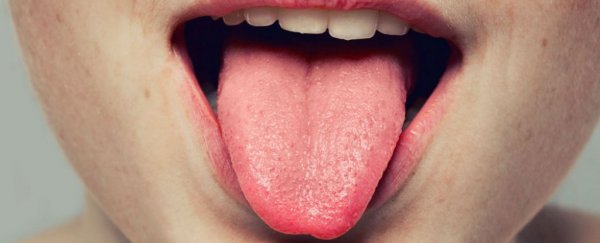It's a question that goes back to Aristotle himself: Does water have a flavour, or is it devoid of taste?
For millennia, scientists have been trying to figure out if the mammalian tongue can specifically taste water, or if our brains are responding to the after-effects of something we tasted earlier. Now, we might finally have an answer, because researchers have located what appears to be a sixth sense on the tongue that's evolved to perceive water.
"The tongue can detect various key nutrient factors, called tastants - such as sodium, sugar, and amino acids- through taste," says lead researcher Yuki Oka, from the California Institute of Technology.
"However, how we sense water in the mouth was unknown. Many insect species are known to 'taste' water, so we imagined that mammals also might have a machinery in the taste system for water detection."
Way back in 330 BC, Aristotle declared that water had no taste of its own, and was merely a vehicle for the flavours you've eaten previously - have you ever noticed how it tastes slightly different right after you've eaten something salty, sweet, or acidic?
The suggestion that what we taste when we drink water is just the after-effect of something else we've eaten came to the fore in the 1920s, and decades later, it was supported by a series of landmark papers by University of Florida psychologist Linda Bartoshuk, whose experiments suggested that even your saliva has more flavour than water.
More recently, experiments have shown that specific parts of the brain respond to water, suggesting that perhaps there is a flavour that our brains can detect, even if our tongues can't.
But that hypothesis doesn't exactly hold up to scrutiny, according to neuroscientist Zachary Knight from the University of California, San Francisco, who told Emily Underwood at Science magazine that our only signal to stop drinking can't be based solely on our slow-moving internal organs:
"[T]he brain must receive information about water from the mouth and tongue, because animals stop drinking long before signals from the gut or blood could tell the brain that the body has been replenished."
Now the debate has been reignited, because Oka and her team have found evidence of taste receptors on the mammalian tongue that appear to respond specifically to plain drinking water - and they're not where you'd expect them to be.
Working with mice, Oka's team measured the electrical responses from taste receptor cells (TRCs) on the tongue to pure water and a number of common tastants.
As expected, the nerves responded to the five basic tastes, sweet, sour, bitter, salty, and umami, but they also detected a signal in response to the water.
"This was exciting because it implied that some taste cells are capable of detecting water," says team member Dhruv Zocchi in a press statement.
Next, the team decided to 'inactivate' the various taste receptor cells to see if the mice still responded to flavours even if their corresponding nerves were blocked.
As expected, when they blocked the salty taste receptor, salt no longer caused a flurry of activity in the taste nerves, but sweet tastants were received as usual.
Interestingly, when they tried blocking each of the five taste receptor cell types in response to water, they found that water perception and sour cells were inseparable.
"To our surprise, when we silenced sour taste cells, water responses were also completely blocked," says Oka. "The results suggested that water is sensed through sour taste cells."
To confirm the connection, the researchers set up another experiment where they had light signals stimulate the sour taste cells instead of water, and as you can see in the footage below, a thirsty mouse happily 'drinks' the light, because its brain is being tricked into thinking it's water:

Amazingly, some of the team's mice went so far as to lick the light spout up to 2,000 times every 10 minutes in an effort to quench their thirst.
"The rodents never learned that the light was just an illusion, but kept drinking long after mice drinking actual water would," Emily Underwood reports for Science.
"That suggests that although signals from TRCs in the tongue can trigger drinking, they don't play a role in telling the brain when to stop."
But we tend to associate sourness with a very specific - and sometimes unpleasant - flavour, so why would it be linked to our perception of plain water?
"These results raise the question: What information about taste are sour cells really relaying to the brain?" says Zocchi.
"Maybe sour cells are not directly linked to the unpleasant sourness that we perceive, but instead they may induce a different type of taste, like water, when stimulated."
Without confirming the discovery in humans, we can't say for sure that the same effect is in play in our own tongues, but the research does suggest that we've been far too simplistic when it comes to our understanding of mammalian tastes.
As nice as it is to have five different taste receptor cell groups for five specific tastes, research now suggests that it's far more complex than that - there could be a number of additional senses in these groups, hiding in plain sight.
The study has been published by Nature Neuroscience.
